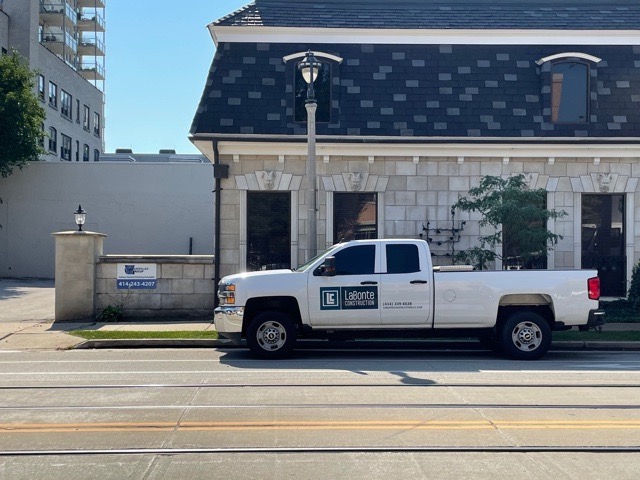9 Types Of Insurance For Your Small Business
Operating a small business can come with risks. Helping to minimize risk can give a small business owner comfort knowing that if a problem arises, they will covered. One of the most effective ways to minimize risk is by having insurance. There are many options when it comes to small business insurance, and finding the right coverage for your small business can help you stay protected. At North Consulting Services we can help you better understand small business insurance and assist you in choosing the right option.
General Liability Insurance
Sometimes referred to as business liability insurance, general liability insurance is among the most common types of insurance small business owners carry. General liability insurance exists to help protect you from claims of injury, libel, slander or damage to your property. In the event someone sues your small business, liability insurance can help pay for legal costs, settlements or judgements. Accidents happen, and general liability insurance can help you be prepared.

Commercial Property Insurance
If you own or lease a property for your business, commercial property insurance is usually required by lenders and landlords. This type of insurance covers you in the event of damages to your property. It also can cover other property associated with your small business such as tools, equipment, inventory and furniture.
Commercial property insurance typically covers damage caused by lightning, wind, hail, fire, theft and vandalism. According to a survey conducted by Insureon, 15.4% of small businesses in the U.S. fell victim to damages that could be covered by commercial property insurance. If your small business operates within a commercial property, commercial property insurance can help cover you in the unfortunate event that your business becomes part of the 15.4%.
Business Income Insurance
Business income insurance, also referred to as business interruption insurance, is there to help cover you in the event that your business needs to temporarily shut down. No small business wants to close their doors, but in the event they are forced to, business income insurance can help pay for the cost of damaged merchandise, lost earnings and the expenses needed if your small business temporarily moves to a new location.
According to the Federal Emergency Management Agency (FEMA), 40 to 60 percent of businesses fail to reopen after a disaster. It is estimated by the National Association of Insurance Commissioners (NAIC) that between 30 and 40 percent of small business owners have some form of business income insurance.
Workers Compensation Insurance
Workers compensation insurance, commonly referred to as workers comp, provides benefits like health care, dental, and vision insurance to employees injured on the job. In the state of Wisconsin, if your business has three or more employees, workers compensation insurance is required by law. Workers comp can also help cover lost wages to employees in the event they are forced to take time off from work due to a work-related illness or injury. Workers comp exists to protect you and your employees in the event of an injury on the job.
Commercial Auto Insurance

A work truck used by LaBonte Construction
Many small businesses rely on their employees to drive to and from locations while at work. While most states require drivers to have personal auto insurance, these policies often exclude coverage for an accident when driving for work. By having commercial auto insurance for your small business, you or your employee will be covered in the event of an accident. Commercial auto insurance is great for businesses that own, rent or lease vehicles, as well as businesses where employees drive personal or company vehicles while at work.
Errors And Omissions Insurance
Someone has probably given you inaccurate information at some point. Occasionally referred to as professional liability insurance, errors and omissions insurance can help protect your business if you or an employee gives a customer inaccurate information or specifications. Most of the time false or inaccurate information is given in good faith, but customers have the right to take legal action against your small business if they see fit.
Errors and omissions insurance covers legal defense costs, judgments and settlements in the event of misrepresentations by your firm. This insurance is key for small businesses such as contractors, architects, accountants, real estate agents, tax preparers and advertising agencies.
There is a subcategory of errors and omissions insurance known as technology errors and omissions insurance. This insurance offers protection to small technology businesses and covers the same issues as standard errors and omissions insurance. Technology errors and omissions insurance is best suited for businesses like computer consultants, internet service providers, IT contractors and software or website developers.
Everyone makes mistakes, but some can be more costly than others. Errors and omissions insurance is there to help ensure that one mistake does not sink your small business.
Data Breach Insurance
One in five small businesses fall victim to cyber attacks, with the average attack costing a business around $9,000. With the small business heavily relying on technology, data breach insurance can help to protect you and your customers in the event your business’s data is compromised. Because of this heavy reliance on the internet, many customer’s private information, i.e. medical history, financial records, or personal information, is likely stored online. Companies with this information are vulnerable to hackers, and data breach insurance exists to protect those whose information becomes compromised.
Data breach insurance can help pay to notify an impacted business, customer, patient or employee whose information has been hacked. It also helps to pay for credit monitoring services after a data breach has occurred. This type of insurance is especially beneficial to businesses such as computer consultants, internet service providers, IT contractors and software or website developers.
Commercial Umbrella Insurance
Commercial umbrella insurance is there to add an extra layer of protection above other liability insurance policies. This can be useful if you have reached your limit on your current insurance policies, or want extra coverage just in case. The cost of commercial umbrella insurance is determined by how much coverage you choose and the level of risk associated with your small business.
Bundling Your Insurance
You’ve probably seen a plethora of insurance commercials that tell you to bundle insurances policies together to get a better rate. This can be done with small business insurance as well. The most standard bundle for small business insurance is known as the business owners policy (BOP). BOP packages property, business income and liability insurance into one.
However, BOPs do NOT cover professional liability, auto or workers compensation insurance. Larger companies might purchase a commercial package policy or customize their policies to meet special risks they may face, but this generally cannot be done with small business insurance.
In Conclusion
As we have seen, there are numerous insurance options for your small business. Choosing the right insurance for your small business can help protect you and your employees. If you would like help going over insurance proposals for your small business, please CONTACT US at North Consulting Services.

